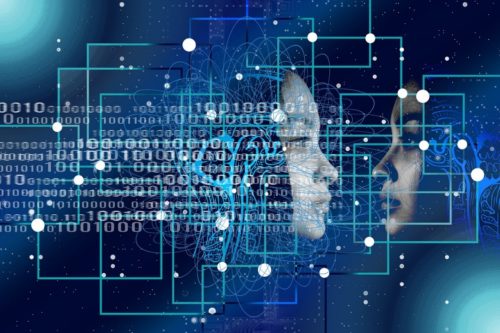
Photo provided courtesy of Unsplash.com
By Shreya Desai, Staff Writer
Clearview AI (“Clearview”), a technology company, has recently become publicly scrutinized over the use of its facial recognition application. [1] The company’s software, without first obtaining permission from uploaders, scrapes billions of images posted on major web and social media platforms, such as Google, Facebook, LinkedIn, and Twitter, to create a searchable database. [2] Specifically, the software attempts to identify people by matching photos uploaded through the application with images already posted online. [3]
Clearview claims this software was only meant for use by law enforcement agencies, to aid in catching criminals, and a small number of private companies. [4] Initially, Clearview allowed Immigration and Customs Enforcement (ICE), Customs and Border Protection (CBP), the Federal Bureau of Investigations (FBI), the United States Attorney’s Office for the Southern District of New York, the International Criminal Police Organization (Interpol), and many local police departments. [5] However, in late February, after Clearview’s client list was leaked, it came to light that the company extended access to its database to many well-known businesses, including Best Buy, Kohl’s, Macy’s, Walmart, and the National Basketball Association. [6]
The company’s billionaire clients also had access to the software. [7] John Catsimatidis, the owner of a grocery store chain, used Clearview’s application to identify a man eating dinner with his daughter. [8] Mr. Catsimatidis simply asked a waiter to take a photo, uploaded the photo to the application on his phone, and was able to find numerous other photos of this man, discovering that he was a venture capitalist. [9] Not only did Clearview allow American companies and business owners access, but it has also provided the technology to its clients in the Middle East. [10]
Many have vocalized concerns about the use of this type of facial recognition technology. [11] Major social media platforms like Facebook, Twitter, Google, and YouTube, from which Clearview scrapes data, sent Clearview cease-and-desist letters, alleging that Clearview’s conduct is violative of their terms of service. [12] Not only does the software raise privacy concerns, but it is also demonstrably less accurate on minority groups, such as women and people of color. [13]
In response to privacy concerns, the CEO of Clearview, Hoan Ton-That, is on the defensive, claiming that there is a right to public information, guaranteed by the First Amendment. [14] The argument is that Clearview uses only publicly available information, operating similar to web search engines, such as Google. [15] However, critics have pointed out that this is contradictory to Clearview’s initial claims and purpose of aiding law enforcement agencies to identify criminal actors. [16]
Concerns over privacy have not been alleviated, as Clearview’s privacy policy does not give users the unlimited “right to erasure.” [17] Deletion of information from Clearview’s application is only offered under certain circumstances, i.e., where there is a legal requirement to do so. [18] Moreover, before an individual can have their removal request processed, the individual must first submit government photo identification to confirm their identity. [19] As a result, many are filing lawsuits against the company, including the states of Virginia, Illinois, and California. [20] Some jurisdictions have even gone so far as to ban their police departments from using Clearview’s software. [21]
As Clearview’s facial recognition software continues to alarm private citizens and giant technology companies alike, it remains to be seen if more lawsuits will be brought and how they will each be resolved over time.
[1] https://www.businessinsider.com/what-is-clearview-ai-controversial-facial-recognition-startup-2020-3#soon-after-the-piece-ran-social-media-giants-began-sending-cease-and-desist-letters-to-clearview-ai-2
[2] Id.
[3] Id.
[4] https://www.vox.com/recode/2020/2/11/21131991/clearview-ai-facial-recognition-database-law-enforcement
[5] https://www.buzzfeednews.com/article/ryanmac/clearview-ai-fbi-ice-global-law-enforcement
[6] https://www.businessinsider.com/what-is-clearview-ai-controversial-facial-recognition-startup-2020-3#check-out-the-full-interview-with-clearview-ai-ceo-hoan-ton-that-right-here-4
[7] https://www.nytimes.com/2020/03/05/technology/clearview-investors.html?te=1&nl=morning-briefing&emc=edit_NN_p_20200305§ion=longRead&campaign_id=9&instance_id=16495&segment_id=21886&user_id=26647bbfa44fa617de9492d28dc3d9a0®i_id=101987120ion=longRead
[8] Id.
[9] Id.
[10] https://www.businessinsider.com/what-is-clearview-ai-controversial-facial-recognition-startup-2020-3#check-out-the-full-interview-with-clearview-ai-ceo-hoan-ton-that-right-here-4
[11] https://www.nytimes.com/2020/03/05/technology/clearview-investors.html?te=1&nl=morning-briefing&emc=edit_NN_p_20200305§ion=longRead&campaign_id=9&instance_id=16495&segment_id=21886&user_id=26647bbfa44fa617de9492d28dc3d9a0®i_id=101987120ion=longRead
[12] https://www.businessinsider.com/what-is-clearview-ai-controversial-facial-recognition-startup-2020-3#soon-after-the-piece-ran-social-media-giants-began-sending-cease-and-desist-letters-to-clearview-ai-2
[13] https://www.vox.com/recode/2020/2/11/21131991/clearview-ai-facial-recognition-database-law-enforcement
[14] Id.
[15] https://www.businessinsider.com/what-is-clearview-ai-controversial-facial-recognition-startup-2020-3#soon-after-the-piece-ran-social-media-giants-began-sending-cease-and-desist-letters-to-clearview-ai-2
[16] Id.
[17] https://www.vox.com/recode/2020/2/11/21131991/clearview-ai-facial-recognition-database-law-enforcement
[18] Id.
[19] Id.
[20] Id.
[21] Id.